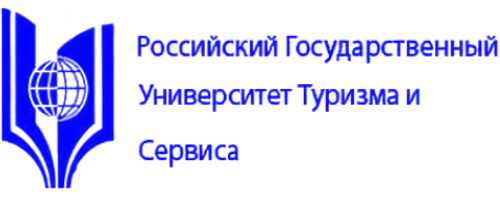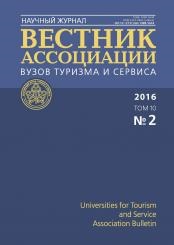This article analyzes the current state and prospects of mainstreaming sustainable tourism in the basic educational programs of Russian universities, as well as identifying obstacles to the expansion of research topics in the field of sustainable tourism in Russia. The overview of Russian works in the field of sustainable tourism demonstrates that the most studied are natural, environmental aspects of sustainable tourism development in terms of long-term interests of society, while the social and economic dimensions of sustainable development of tourism are presented by a limited number of fragmented works. This situation in the domestic tourism science greatly contrasts with the ways of international tourism research in this area, where can be found a more balanced mix of studies, as the share of socio-economic research in the total volume of works on sustainable tourism is much higher. A significant lack of research on the socio-economic aspects of sustainable tourism development is established by content analysis of domestic and foreign publications, and by their comparative analysis. Thematic focus of international projects on sustainable tourism in Russia is also analyzed to arrive to some indicative conclusions. The only comprehensive project in the field of sustainable tourism is currently under way between the Russian State University of Tourism and Service and Telemark University College (Norway), and in many ways it is still the first and only one. The main reason for the observed bias in domestic research, according to the author, is a strong starting position of natural sciences in comparison to social onesl. Another reason may be the rigidity of domestic tourism researchers of the humanitarian and economic profile in relation to the issues of sustainability, when Russian economists and specialists in humanities are under the influence of more successful researches in natural science and they underestimate the whole palette of concepts and approaches of socio-economic nature, relevant to the issues of sustainable tourism, and that is the reason why they are mentally limited to just the recognition and enumeration of the most obvious and basic socio-economic aspects of sustainable tourism (such as local employment, infrastructure development, replenishment of local budgets, integration into the world economy), and do no not go further, do not proceed with conducting specific studies within broader and more concrete settings of sustainability issues. The issues of sustainable tourism in domestic tourist education are even less represented than in science. Over the past few years, only six Russian universities as part of their basic educational programs offered individual subjects to study sustainable tourism. To this can indirectly be added another dozen or so universities that offer disciplines in eco-tourism, and about two dozen universities offering courses on sustainable development, including some problems of tourism development. And only one university in Russia offers modules in sustainable tourism at the Master level, and that institution delivers three subjrects on sustainable tourism. It seems that the main problem in the Russian tourist education in the context of sustainable tourism is in some sense too "respectful" attitude to the subject of sustainable tourism, when it is believed that students should "grow" up to some level to get acquainted with this concept at a Master degree course of studies. In Europe, the concept of susyainable tourism is more culturaland widespread, and it is brought to bachelors just in more simple words and then at the Master level it is just taught with a higher academic rigor. This approach is in general culturally and professionally more productive. The second advantage of the European way of teaching sustainable tourism is that there is a much greater linkage between the concept and the context of small businesses, in other words sustainable developed not necessarily linked to the context of destination development and planning. Therefore, sustainable tourism is quite often studied in business schools. In his publication the author tries to draw the attention of the national scientific community to the problem of conceptual and epistemological backwardness of the Russian tourism science in comparison to the international tourism science when it comes to sustainable tourism issues. Present deficiencies in socio-economic research and educational programs can be eliminated within a few years if the national scientific and educational communities duly appreciate the whole range of issues of sustainable tourism and the promising outlook for research and educational programs in this field.
sustainable tourism, sustainable tourism development, socio-economic research, tourism research
В настоящей публикации мы будем придерживаться следующей логики. Начнем с характеристики текущего состояния с преподаванием устойчивого туризма, с описания того, в каких степени и объеме и насколько сбалансированно данный пласт туристского знания представлен в российских образовательных программах. Состояние с преподаванием устойчивого туризма само по себе будет во многом индикативным относительно того, какое место отводится проблематике устойчивого туризма в отечественном научно-образовательном пространстве. Затем покажем, по какому тематическому принципу строятся некоторые зарубежные образовательные программы, включающие в себя модули по устойчивому туризму. Далее обратимся к вопросу о спектре исследований в области устойчивого туризма в России, в особенности с точки зрения социального и экономического измерений туризма, чтобы показать, какие исследовательские попытки уже предпринимались отечественными учеными. После этого рассмотрим, какие исследования представлены в зарубежной науке. Подобный сравнительный анализ позволит хотя бы примерно оценить степень возможного концептуального отставания отечественной науки и образования в проблематике устойчивого туризма. Результатом должна стать идентификация некоторых сформировавшихся белых пятен в отечественных туристских исследованиях, что, в свою очередь, возможно, поможет лучше осознать важность и академическую значимость многообразия социально-экономических аспектов устойчивого туризма и предпринять более осмысленные и амбициозные попытки заполнить существующие на настоящее время научно-образовательные разрывы. Этими соображениями и предположениями продиктованы логические последовательность и структура изложения настоящей статьи.
1. OOP «Turizm», BFU im. I. Kanta, http://www.kantiana.ru/entrant/programms/oop_turizm_magistratura. pdf (data obrashcheniya: 18.12.2014).
2. Ustoychivoe razvitie i ustoychivyy turizm, MGPU, http://www.mgpu.ru/materials/32/32445.doc (data obrashcheniya: 18.12.2014).
3. Ustoychivoe razvitie rekreatsii i turizma, MGU, http://www.geogr.msu.ru/student/programs/m_ turizm/m_turizm_ustojchivoe_razvitie_rekreatsii_i_turizma.pdf (data obrashcheniya: 18.12.2014).
4. Strategicheskoe razvitie turizma, YuUGU, http://efir.susu.ac.ru/wp-content/uploads/Strategiya-razvi-niH-TypH3Ma.pdf (data obrashcheniya: 18.12.2014).
5. Ustoychivoe razvitie turizma v stranakh i regionakh mira, AGU, http://www.asu.ru/files/ documents/00001964.pdf (data obrashcheniya: 18.12.2014).
6. OOP «Menedzhment turistskikh destinatsiy», Rossiyskaya Mezhdunarodnaya Akademiya Turizma, http:// www.rmat.ru/rumagistrant/ (data obrashcheniya: 18.12.2014).
7. Journal of Sustainable Tourism, http://www.tandfonline.eom/toc/rsus20/current#.VJcldl4h-A (data obrashcheniya: 19.12.2014).
8. Magisterskaya programma po ustoychivomu turizmu, Universitet Sarrey, http://www.surrey.ac.uk/ postgraduate/sustainable-tourism (data obrashcheniya: 18.12.2014).
9. Programma bakalavra delovogo administrirovaniya «Menedzhment v turizme i gostepriimstve», Universitet MODUL, http://www.modul.ac.at/study-programs/bba-in-tourism-and-hospitality-management/ curriculum/, (data obrashcheniya: 18.12.2014).
10. Modul´ «Ustoychivyy menedzhment v turizme», Universitet Roberta Gordona, http://www4.rgu.ac.uk/ prospectus/modules/disp_moduleViewcfm?Descriptor=BS2212, (data obrashcheniya: 18.12.2014).
11. Ustoychivyy menedzhment v turizme, Universitet Ekseter, http://business-school.exeter.ac.uk/ module/?mod_code=BEMM375, (data obrashcheniya: 18.12.2014).





